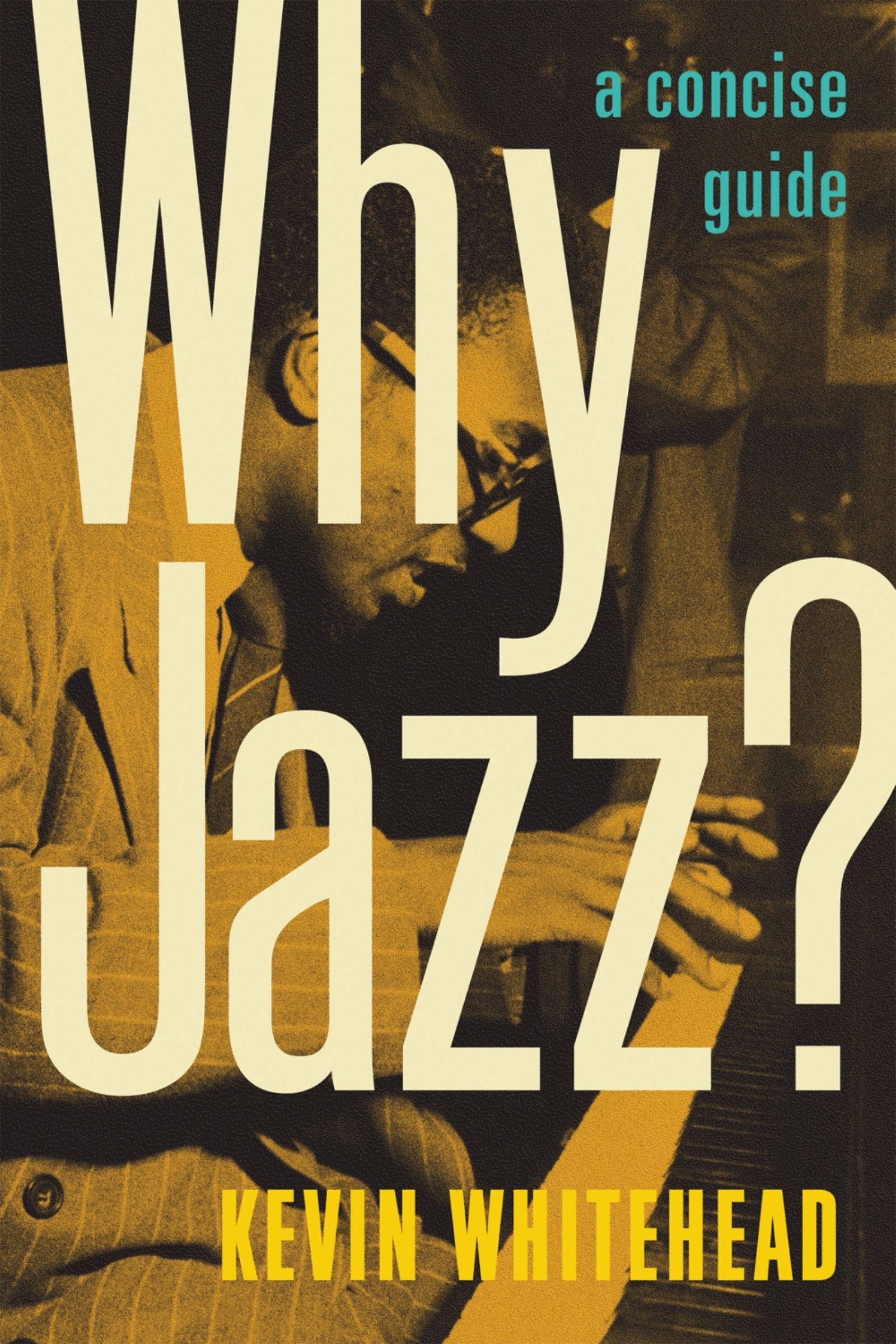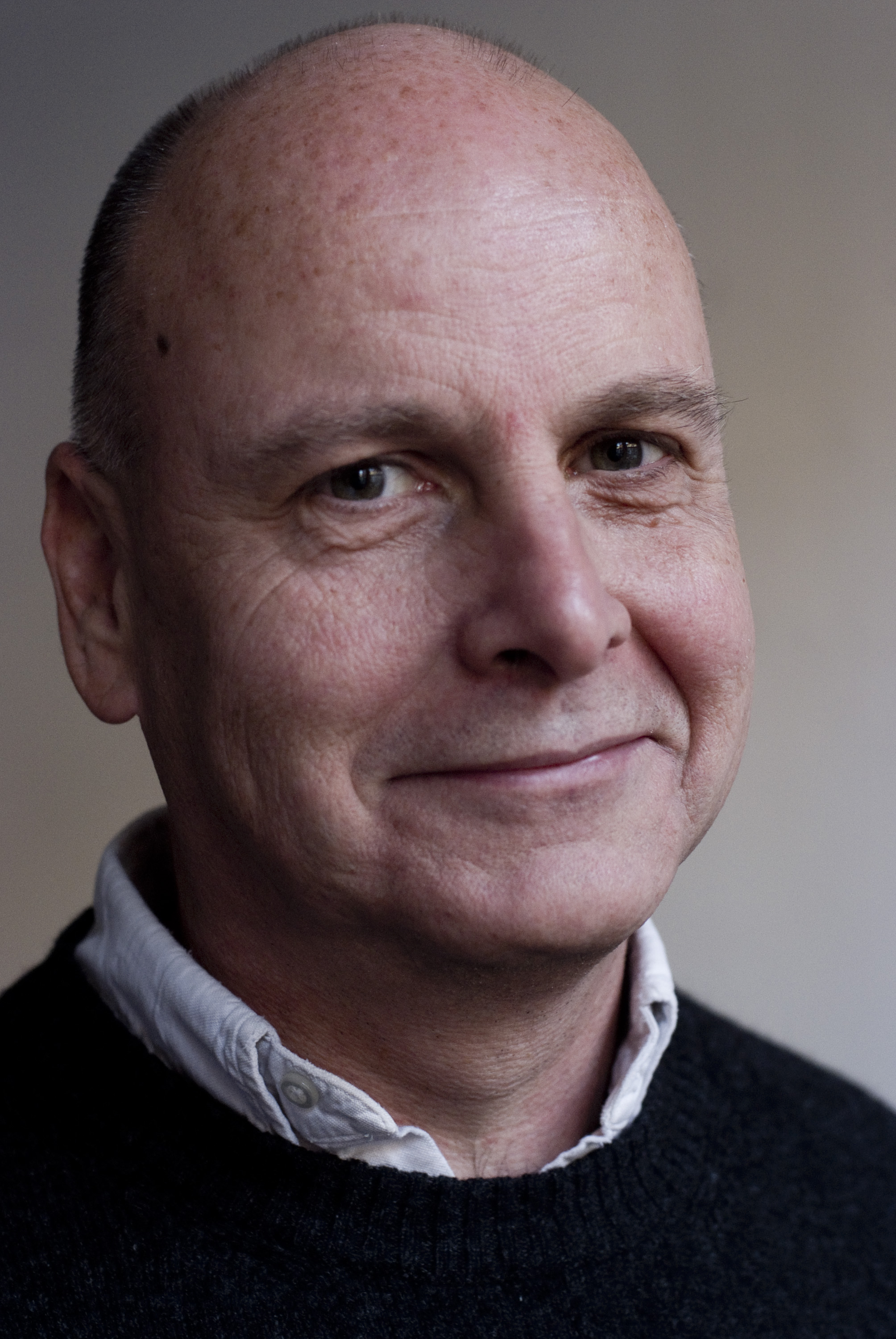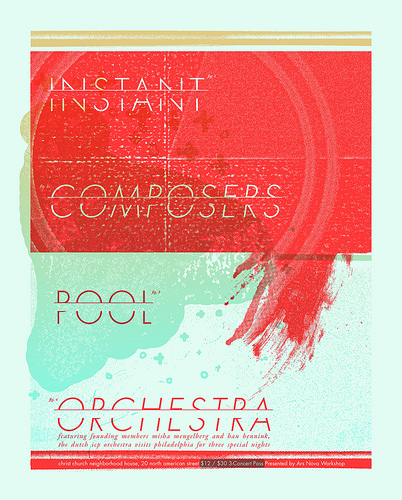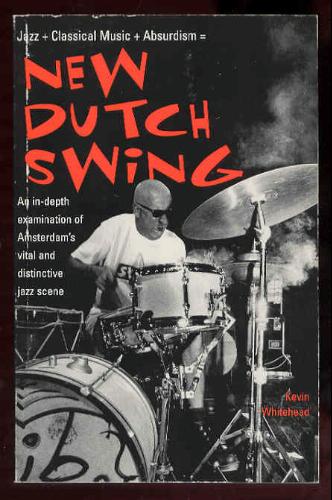
Kevin Whitehead has been writing professionally about jazz and its discontents since 1979. His work has appeared in the pages of the Chicago Sun-Times, Downbeat and the Village Voice. He is the author of 1996’s New Dutch Swing and his essays have been anthologized in the Da Capo Best Music Writing 2006, Jazz: The First Century and The Cartoon Music Book. He currently serves as jazz critic for Fresh Air, where he habitually champions way-off-the-beaten-path but worthy fare while dispensing deadpan insights delivered with the bone-dry elegance of an Eric Dolphy solo. He’s just published his second book, Why Jazz? A Concise Guide, which somehow manages to speak to neophytes and adepts simultaneously. He will be in town this weekend to lead a discussion with acclaimed Dutch ensemble Instant Composer’s Pool Orchestra, who are doing a three night stand at Christ Church this weekend presented by Ars Nova Workshop.
PHAWKER: If the flying saucers landed today and the aliens got out and asked you ‘what does this thing called jazz sound like?’ what piece of music would you play for them?
KEVIN WHITEHEAD: Well, if they already know jazz exists, they’ve been monitoring our radio signals, so they’d probably have their own favorites  already. I’d rather ask them what they’d want to hear. (Please, saucer people—not Kind of Blue.) Or I could go with something they could relate to, like Sun Ra’s band singing “Rocket number nine take off for the planet Venus….”
already. I’d rather ask them what they’d want to hear. (Please, saucer people—not Kind of Blue.) Or I could go with something they could relate to, like Sun Ra’s band singing “Rocket number nine take off for the planet Venus….”
PHAWKER: Would you agree that the middle of the 20th Century was jazz’s Golden Age? And if so, where does that leave us now? The post-Golden Age?
KEVIN WHITEHEAD: I’d agree midcentury was one Golden Age for jazz; rhythm sections sounded awfully good in the late ’50s, and there were a lot of striking developments in that period. But a lot of great music has come out since I started writing about jazz in 1979. Maybe we’re in a post-Golden Age bronze age.
PHAWKER: Would you agree that Smooth Jazz was almost the death of it?
KEVIN WHITEHEAD: Far as I can tell, smooth jazz had no detrimental effect on jazz, mostly because fans and practitioners of unsmooth jazz never paid it much mind. Did elevator music hurt the Beatles?
PHAWKER: What do you tell people if or when they tell you ‘I hate jazz’ or ‘I just don’t get it’?
KEVIN WHITEHEAD: If they’d checked it out and still didn’t like it, I’d tell them that’s OK—it’s not like everyone has to like it, but thanks for trying. If they just found it baffling and didn’t know what to listen for, I’d suggest they read my new book “Why Jazz?”
PHAWKER: Tell us a little about your book WHY JAZZ? And given that it took you a whole book to answer that question, can you give us the short answer.
KEVIN WHITEHEAD: The book is a short intro that sets out to do two things: to make the music accessible to curious folks who don’t really know anything about it; and to take a fresh look at some aspects of jazz history, and examine some neglected sub-topics, so seasoned listeners could learn something too. It’s the short version, but there are advantages to that: the broad-strokes version makes it easier to make connections across time and space and schools of music—to uncover what diverse sounds have in common.
Shorter answer to ‘Why jazz?’ It’s fun to listen to.
 PHAWKER: Can you briefly explain the premise and history of the Instant Composer’s Pool and where they fit in the continuum of modern jazz?
PHAWKER: Can you briefly explain the premise and history of the Instant Composer’s Pool and where they fit in the continuum of modern jazz?
KEVIN WHITEHEAD: Briefly: in the late ’60s, musicians in a few western European countries started developing their own improvised music styles, informed by jazz but branching off. The Dutch contingent were the jolliest, and included pianist Misha Mengelberg and drummer Han Bennink. They started the ICP Orchestra in the 1970s but it really took off in the ’80s, when most of the present 10-tet came together. Misha wrote most of the music, which could sound very jazzy or like crackpot Mozart, and also arranged pieces by his American faves, Duke Ellington, Thelonious Monk and Herbie Nichols. Like Ellington, he saw the appeal of a band of individuals with varied backgrounds, and distinctive, contrasting styles as soloists. He also taught the musicians little games and strategies they could use to subvert his authority as bandleader.
ICP can sound like a miniature big band or a chamber group, as musicians move from rearranged Ellington into a raucous or quiet free improvisation and then a Mengelberg fanfare or a bit of spontaneous theater. It’s slippery music, walking a line between chaos and sublime lyricism, and they have the damnedest way of changing things up just before they wear out. It’s really quite amazing, and often very funny, and any fan of jazz now or new music or improvised performance would be crazy to miss them when they come to town. Philadelphia, this weekend, say.
PHAWKER: Would like to hear your take on a couple jazz legends that are Philly-identified: John Coltrane and Sun Ra. What, in your estimation, makes each of them great (assuming that is your opinion) and how did they impact what came after them?
KEVIN WHITEHEAD: Coltrane: there’s no more influential saxophonist since 1960; students all over the world study his solos and learn to fit improvised melodies to underlying chords or scales by following his example. He popularized the soprano saxophone. And played lovely ballads. And had a distinctive shellac-hard tone, and showed you could play a zillion notes without sounding tasteless. And….
Sun Ra integrated free jazz with a traditional big band before Misha or anyone else, and was reviving 1920s jazz classics years before retro jazz became trendy. His live shows were spectacular pageants: part sci-fi dream, part black carnival. He was the master of getting useful/effective sounds out of cheesy electronic keyboards—and of writing beautiful, upside-down saxophone voicings. As a composer he had a genius for finding the right wrong notes.
PHAWKER: If you could ask Miles Davis any question what would it be?
KEVIN WHITEHEAD: Where you been hiding for 20 years since faking your death?
PHAWKER: Since you are the jazz critic for Fresh Air which pretty much means you work for NPR, so you would probably know better than most: Does NPR have a liberal bias? Like, are there producers standing over your shoulder telling you to add more positive references to the New Deal or the Great Society into your copy?
KEVIN WHITEHEAD: I don’t in fact work for NPR, but for WHYY. I’ve never been to NPR headquarters in DC, and I was down the street from there just yesterday, so I don’t even have any hearsay dirt for you. I can testify that my Philadelphia masters at Fresh Air let me review what I want, and never try to put words in my mouth. (Believe me, it’s a dream gig.) Some music I review is a little way out for some listeners, to judge by comments they leave; does that prove liberal bias?
PHAWKER: One last hypothetical, you wake up in the middle of the night to find your house on fire, you only have time to grab one album — which one do you grab and why?
KEVIN WHITEHEAD: Some vintage Sun Ra, in case the saucer people started that fire while blazing their way to victory. I for one would welcome our new Ra-ophile overlords.
